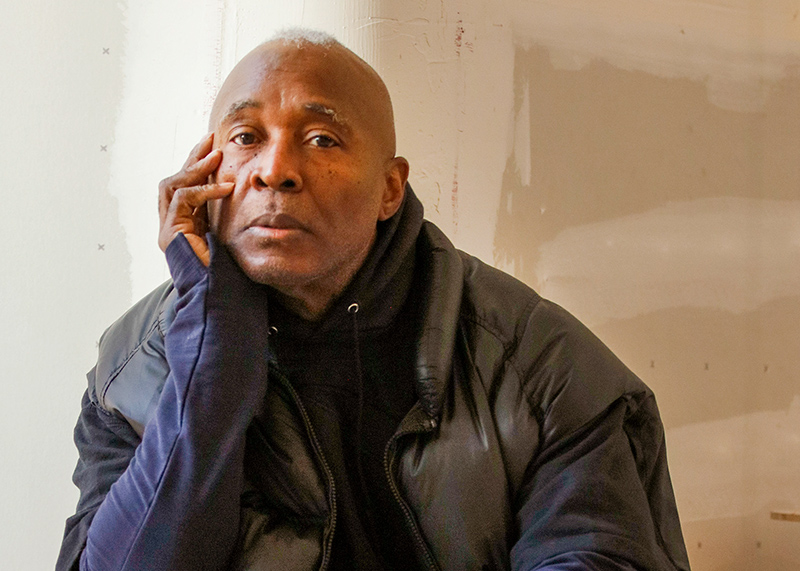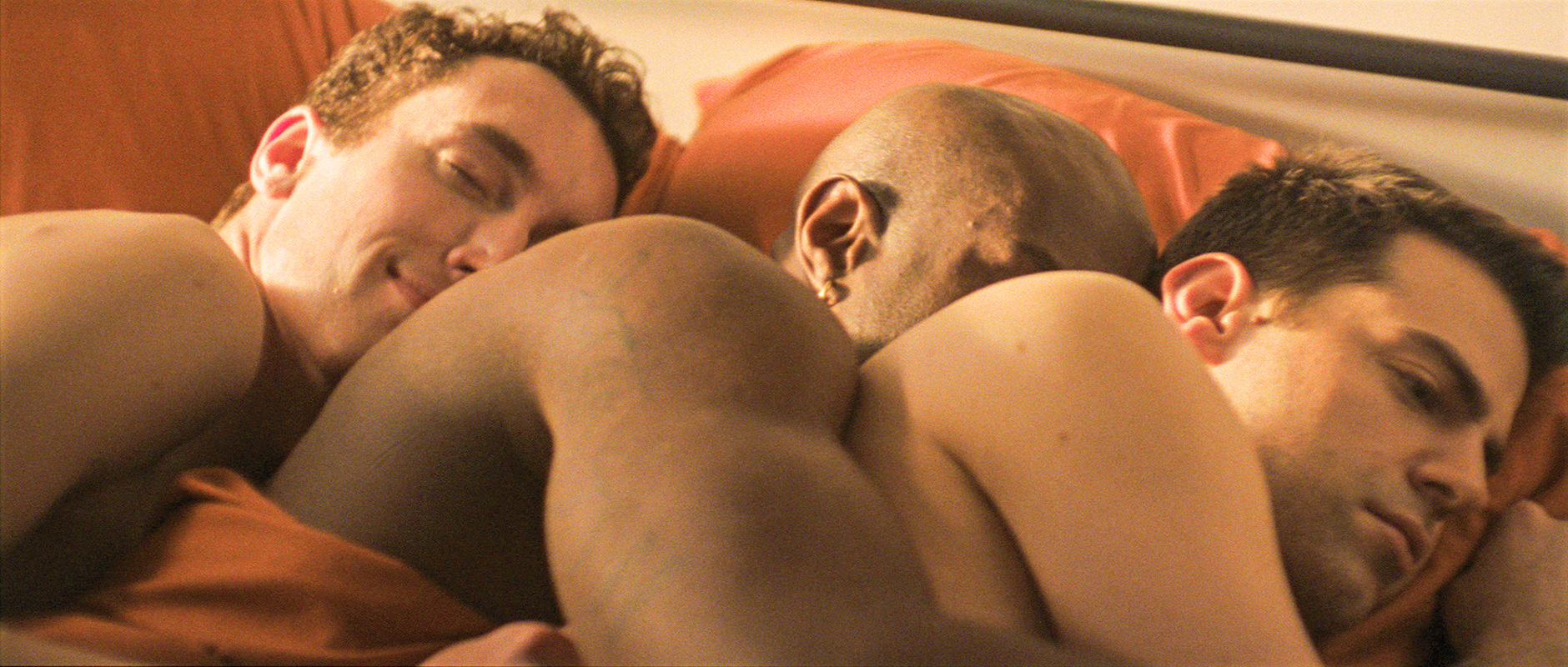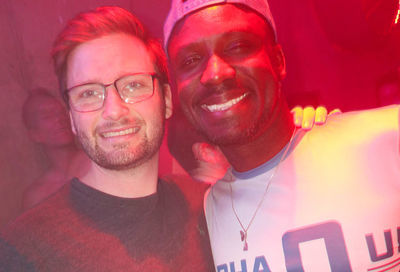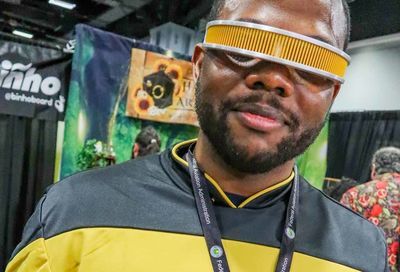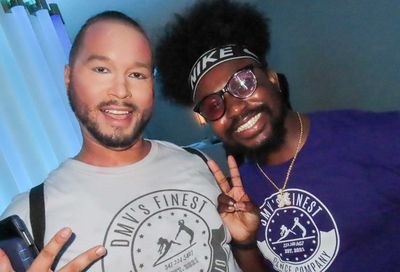San Francisco Pride and the LGBT divide over Bradley Manning

When Bradley Manning appeared before a military judge at Fort Meade in Maryland on a chilly day in late February, he admitted to being solely responsible for the largest leak of secret documents in American history.
“No one associated with [WikiLeaks] pressured me into sending any more information,” Manning said. “I take full responsibility.”
Before reading from a 35-page prepared statement, the 5-foot-2, 25-year-old Army private, who has spent more than a thousand days imprisoned at Quantico Marine Base in Virginia, pleaded guilty to 10 criminal counts associated with the massive document dump to the whistleblower website WikiLeaks in early 2010. Although Manning could face up to 20 years in prison for those charges, when his trial begins next month prosecutors will move forward with their attempt to have him convicted on charges that could carry a life sentence, including aiding the enemy and violating the Espionage Act, to which Manning has pleaded not guilty.
Manning was arrested in May 2010 while serving in Iraq after ex-hacker Adrian Lamo reported Manning to the FBI following a conversation the two had over an instant-messenger service in which Manning confided that he was a source for WikiLeaks.
During Manning’s court appearance, he admitted to first trying to give the documents to The Washington Post and The New York Times, but eventually chose Julian Assange of WikiLeaks after neither paper expressed interest in the information.
Manning’s passage of classified information to WikiLeaks led to the publication of hundreds of thousands of diplomatic cables and Army reports that Manning, at times, was able to smuggle by copying them to a digital storage card for his camera. Manning also leaked videos of a 2009 airstrike in Afghanistan that killed around 100 civilians and a 2007 airstrike in Iraq that killed several civilians and two war correspondents for Reuters.
“Hilary Clinton, and several thousand diplomats around the world are going to have a heart attack when they wake up one morning, and finds an entire repository of classified foreign policy is available, in searchable format to the public,” Manning wrote in a conversation with Lamo that began on May 21, 2010, and which has been published in full by Wired.
Manning is not a whistleblower in the traditional sense of the word. Unlike Daniel Ellsberg, a Manning supporter who, as an analyst for the U.S. military in 1971, leaked a top-secret study on the Vietnam War known as the Pentagon Papers to The New York Times and other publications, the hundreds of thousands of documents Manning released would not have come to his attention had he not sought them out. Trained as an intelligence analyst with top security clearance, he went looking for the information he sought nearly as soon as he arrived in Iraq in October 2009. And while supporters insist there is no evidence any American lives were harmed by Manning’s actions, prosecutors insist there is no way Manning could have been able to properly assess the impact each of the leaked documents could have had on security and diplomatic and military operations.

Nevertheless, since Manning’s arrest he has become a martyr for open government advocates and anti-war activists, a role that has been amplified by what many believe to be his mistreatment while in custody. (For nearly a year Manning was essentially on suicide watch, kept alone in a cell for 23 hours a day with guards checking on him every few minutes.)
Notably, Manning, who identified as gay when he joined the military and has indicated he may be transgender, has witnessed elements of the LGBT community rally around him and his cause. For a movement that sprouted from the social injustice of the 1960s, the treatment of Manning and his effort to expose war atrocities have lent him hero status.
But Manning has also divided the LGBT community, particularly among servicemembers, in ways rarely seen. Nowhere has that been more apparent than with a recent fiasco that has engulfed organizers of San Francisco Pride.
Following reports in late April that Manning would serve as one of the honorary grand marshals for San Francisco’s annual Pride Parade in June, with Ellsberg attending in his stead, a firestorm broke out on social media. Criticism immediately came from a number of gay servicemembers outraged that Manning, who remains on trial for violating his duties as a soldier, would be honored in such a high-profile way.
Air Force 1st Lt. Josh Seefried, co-chairman of the board of directors of OutServe-SLDN, tweeted that San Francisco Pride’s move was a “complete insult” to those currently serving and said he was “[a]bsolutely ashamed.”
“@SFPride’s decision to choose Bradley Manning as Grand Marshall is a direct insult to the thousands of LGBT servicemembers and vets. #nohero,” Seefried added.
A petition was quickly launched and Sean Sala, a Navy veteran and activist, vowed to call for a national boycott of the Pride celebration. Coming less than a year after activists successfully won a battle to permit active-duty servicemembers to march in the San Diego Pride Parade in full uniform, critics also argued the Manning pick could rankle a Pentagon still implementing the repeal of “Don’t Ask, Don’t Tell.”
Within hours San Francisco Pride had backpedalled, announcing Manning would not be a grand marshal, that his nomination by the organization’s electoral college was a mistake and that a staffer prematurely made the announcement without authorization.
“Bradley Manning is facing the military justice system of this country. We all await the decision of that system. However, until that time, even the hint of support for actions which placed in harms way the lives of our men and women in uniform — and countless others, military and civilian alike — will not be tolerated by the leadership of San Francisco Pride,” said Lisa Williams, San Francisco Pride Board president, in a statement. “It is, and would be, an insult to every one, gay and straight, who has ever served in the military of this country. There are many, gay and straight, military and non-military, who believe Bradley Manning to be innocent. There are many who feel differently. Under the US Constitution, they have a first amendment right to show up, participate and voice their opinions at Pride this year.”
While San Francisco Pride was able to quell outrage from Manning detractors, the move immediately outraged Manning supporters who vowed to protest at the parade in June.
“LGBTQ activists fought hard for years to win the right to live free from the fear that we could be targeted with violence deemed acceptable to society at large, simply for being who we are,” wrote more than 60 members of the LGBT community, including activist and former Army Lt. Dan Choi, in a letter posted on the Bradley Manning Support Network’s website. “We members of the LGBTQ community would like to stand in solidarity with others around the world who still must live in fear of violence and oppression, simply for being born into a particular group.”
Since Williams announced that Manning would not be honored as a grand marshal at this year’s Pride Parade, the backlash from Manning supporters has been feverish. San Francisco Pride’s Facebook and Twitter accounts have been inundated with calls for him to be reinstated. Last week, Manning supporters filed a complaint against San Francisco Pride with the San Francisco Human Rights Commission, alleging the board illegally invalidated a democratic vote. A meeting scheduled for May 14 to address the controversy has been postponed until a larger venue can be found. Organizers stipulated, however, “SF Pride’s decision concerning the election process of Bradley Manning as Grand Marshal being consistent with SF Pride’s long standing Grand Marshal election policy is firm. Thus, the discussion of that matter is closed for this year.”

Despite Manning’s support among individuals in the LGBT-rights movement, Manning is a topic few national LGBT organizations want to touch. Both the Human Rights Campaign and the nation’s largest LGBT military organization, OutServe-SLDN, declined to comment for this article, nor have they commented on Manning in the past.
During a December 2011 hearing, Manning’s lawyers outraged transgender advocates when they implied his judgment had been clouded because he was suffering from “gender identity disorder.” Supporters of “Don’t Ask, Don’t Tell,” such as the Family Research Council, immediately picked up on the defense as evidence of why LGBT people should not be allowed to serve in the military.
Manning was not unfamiliar to the political scene in D.C. Having spent 15 months living with his aunt in Potomac, Md., before joining the military, he was involved with local Stonewall Democrats and in protests against DADT. In his chats with Lamo, he claimed to have sources at HRC, the Pentagon and the White House, naming White House spokesman Shin Inouye. He also claimed to be a source for reporter Chris Johnson of the Washington Blade. But few seem to have known him very well, and his chats with Lamo also reveal a troubled 22-year-old desperate to get out of the military.
“im very isolated [at the moment]… lost all of my emotional support channels… family, boyfriend, trusting colleagues… im a mess,” Manning wrote in his chat with Lamo. “im in the desert, with a bunch of hyper-masculine trigger happy ignorant rednecks as neighbors… and the only safe place i seem to have is this satellite internet connection.”
Observers point to Manning and the controversy in San Francisco as epitomizing a movement born from civil disobedience that has entered the mainstream in recent years. With the embrace of open military service and marriage equality, the movement’s radical roots have faded as the community has diversified and expanded to people of all walks of life.
“A movement that once overlapped with the labor, sexual, and anti-war movements now won’t even question – won’t even let anyone question, for fear of being associated with their questioning – anything as controversial as military occupation or corporate greed,” wrote gay journalist Steven Thrasher for Gawker. “This past weekend confirmed for me what older gay and lesbian activists have been telling me, correctly, for years: that the modern gay pride celebration is not a political march about free expression, but a corporate trough.”
The controversy is expected to only gather steam with Manning’s court-martial scheduled to begin in early June. Despite San Francisco Pride’s decision not to honor Manning, when the parade makes its way down Market Street June 30, Manning supporters have vowed to take part.
“At the Gay Pride parade, I guarantee to you that I will be marching in that parade, for the first time for me, with a banner honoring Bradley Manning,” the 82-year-old Ellsberg said at an April 29 rally protesting San Francisco Pride’s decision. “If that will not be tolerated by the leadership, I guess I’m in for a little intolerance in the course of this.”
[Photo: Bradley Manning via Wikimedia Commons. Images courtesy of the Bradley Manning Defense Network.]
Support Metro Weekly’s Journalism
These are challenging times for news organizations. And yet it’s crucial we stay active and provide vital resources and information to both our local readers and the world. So won’t you please take a moment and consider supporting Metro Weekly with a membership? For as little as $5 a month, you can help ensure Metro Weekly magazine and MetroWeekly.com remain free, viable resources as we provide the best, most diverse, culturally-resonant LGBTQ coverage in both the D.C. region and around the world. Memberships come with exclusive perks and discounts, your own personal digital delivery of each week’s magazine (and an archive), access to our Member's Lounge when it launches this fall, and exclusive members-only items like Metro Weekly Membership Mugs and Tote Bags! Check out all our membership levels here and please join us today!




